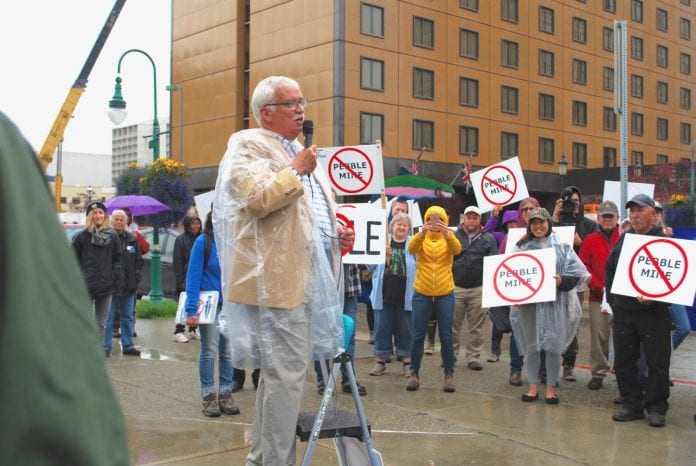
It’s Groundhog Day all over again in the federal court system over the fate of a proposed copper, gold and molybdenum mine in an area of Southwest Alaska abutting the Bristol Bay watershed.
A Canadian mining company intent on building a copper, gold and molybdenum mine abutting the Bristol Bay watershed, having spent increasing millions of dollars in defense of a project, maintains that their project will provide hundreds of jobs and boost regional and state economies, all in harmony with the world’s largest run of wild sockeye salmon.
Opponents of the project reiterate it’s a mistake for Northern Dynasty Minerals and the state of Alaska to continue to pursue development of what could be the largest open pit mine in North America near headwaters of Bristol Bay’s wild sockeye salmon fishery, the largest sockeye salmon run in the world. These sockeyes, says the Bristol Bay Native Corp., support a commercial fishery that provides over $2 billion in economic value annually and more than 15,000 jobs, and Pebble is the wrong mine in the wrong place.
It’s now up to the courts to decide who is right.
Northern Dynasty argues in its brief filed on Friday, March 15, that the EPA veto was issued in violation of various federal statutes regarding Alaska’s statehood rights and a land exchange approved by Congress. It was based on an overly broad legal interpretation of EPA’s jurisdiction which has since been overruled by the Supreme Court, and its geographic scope exceeds that allowed by the statute, the mining firm said.
Northern Dynasty has also filed in the U.S. Court of Federal Claims in Washington DC, claiming that the EPA’s actions constitute an unconstitutional “taking” of Northern Dynasty’s and the Pebble Partnership’s property. According to Ron Thiessen president and CEO of Northern Dynasty, the general provision in the Clean Water Act cannot authorize the EPA to take action to block the mine that was Congress’ express purpose for granting these lands to the state of Alaska under the Cook Inlet Land Exchange.
BBNC President and CEO Jason Metrokin responding to the legal challenges to the EPA’s final determination for Bristol Bay, said on March 15 that BBNC intends to defend measures EPA imposed to protect waters and fisheries of Bristol Bay.
“It is simply a mistake for NDM and the State of Alaska to continue to pursue the development of what could be North America’s largest open pit mine near the headwaters of Bristol Bay’s incredible salmon fisheries,” he said.
The state of Alaska meanwhile is asking the U.S. Court of Federal Claims for over $700 billion, contending that the federal government confiscated the land in violation of the Cook Inlet Land Exchange of 1976 and violated the Statehood Act of 1953. Alaska Attorney General Treg Taylor said the state doesn’t think the federal government has the right to do this, but if a court finds that they do, Alaska must be compensated for inability to use and develop its own resources.














